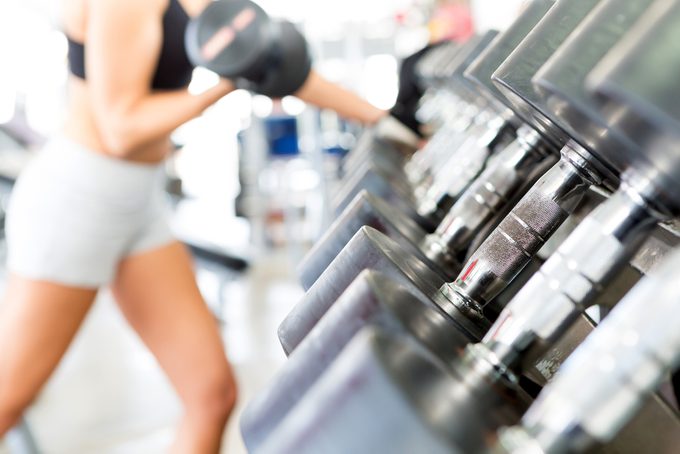The Best Exercise for Your Brain
Sure, a few rounds on a weight-training circuit will go a long way to helping you physically, but did you know exercise does wonders for your mental capabilities, too? Read more about the best exercise for your brain

There’s no doubt that going for a brisk walk or taking a Pilates class is good for your health. Regular exercise has been shown to reduce the risk of heart disease, stroke and diabetes. It zaps stress and depression. It also helps you look better, by managing body weight, toning muscles and improving posture. If that’s not enough incentive, here’s one more benefit: Exercise creates changes in the brain that protect thinking skills and memory as we age.
If you’re new to fitness, don’t fret. “It’s never too late to start exercising to improve your brain health,” says Dr. Teresa Liu-Ambrose an associate professor and a Canada research chair in physical activity, mobility and cognitive neuroscience at the University of British Columbia. Experts used to think that the adult brain was somewhat static, but “we are now recognizing that this isn’t true – your brain has the capacity to grow and repair itself,” says Dr. Liu-Ambrose.
Any kind of physical activity is beneficial, but research has shown that certain forms of fitness are particularly good at targeting mental muscle.
Walking
As we age, there’s a tendency to lose muscle mass throughout the body; even brain mass shrinks. But, according to a study published in Frontiers in Aging Neuroscience, cardio training like walking, running and swimming can actually grow the volume of the brain, which includes more neurons being developed and maintained in critical regions of the brain like the hippocampus, which is key for learning and memory. To get results, aim for 10,000 steps daily, and take part in cardio activities at least three days a week.
Dancing
A ballroom, salsa or adult ballet class can go a long way to reducing your risk of dementia. “Because of the different moves and motor patterns that are required in dance, your brain works hard for the higher cognitive load,” says Dr. Liu-Ambrose. In a study published in Psychology of Sport and Exercise, elderly participants who took part in a 40-minute aerobic dance class showed improved cognition when the class introduced new moves or a new dance sequence. Not only does your brain have to recognize the movements you’re doing at that moment in time but it also has to anticipate the next moves.
Weight training
Dr. Liu-Ambrose’s research with weight training in older adults (ages 65 to 75) has shown an improvement in white matter in the brain (which acts as a “superhighway” that allows signals to travel from one side of the brain to another). But that doesn’t mean the payoff is only for seniors: Dead tissue in white matter can be seen in brain scans of those as young as 40, which can lead to a higher risk of developing dementia later on.
Weight training is a powerful tool when it comes to prevention, and it has benefits for people already diagnosed with vascular cognitive impairment (the second most common type of dementia), which can accelerate Alzheimer’s progression. “We tend to think of disease as ‘you either have it or you don’t and that once you’ve been diagnosed, the disease will only progress,” says Dr. Liu-Ambrose, “but exercise has been proven potent enough to actually slow down progression.” In one study, those who did weight training twice a week showed improved memory, increased muscle power and reduced white-matter atrophy.
Your body isn’t the only thing you need to exercise. Give your mind a workout with these free brain-boosting games.
Related:
• 6 Things You May Not Know About Mental Health
• Top 5 Apps to Keep Your Brain Engaged
• 8 Nutrients to Help Beat Anxiety




